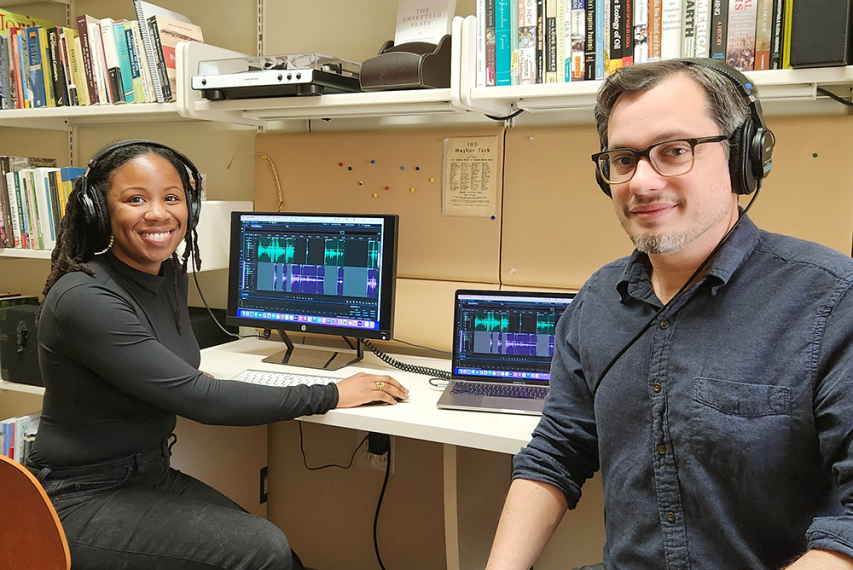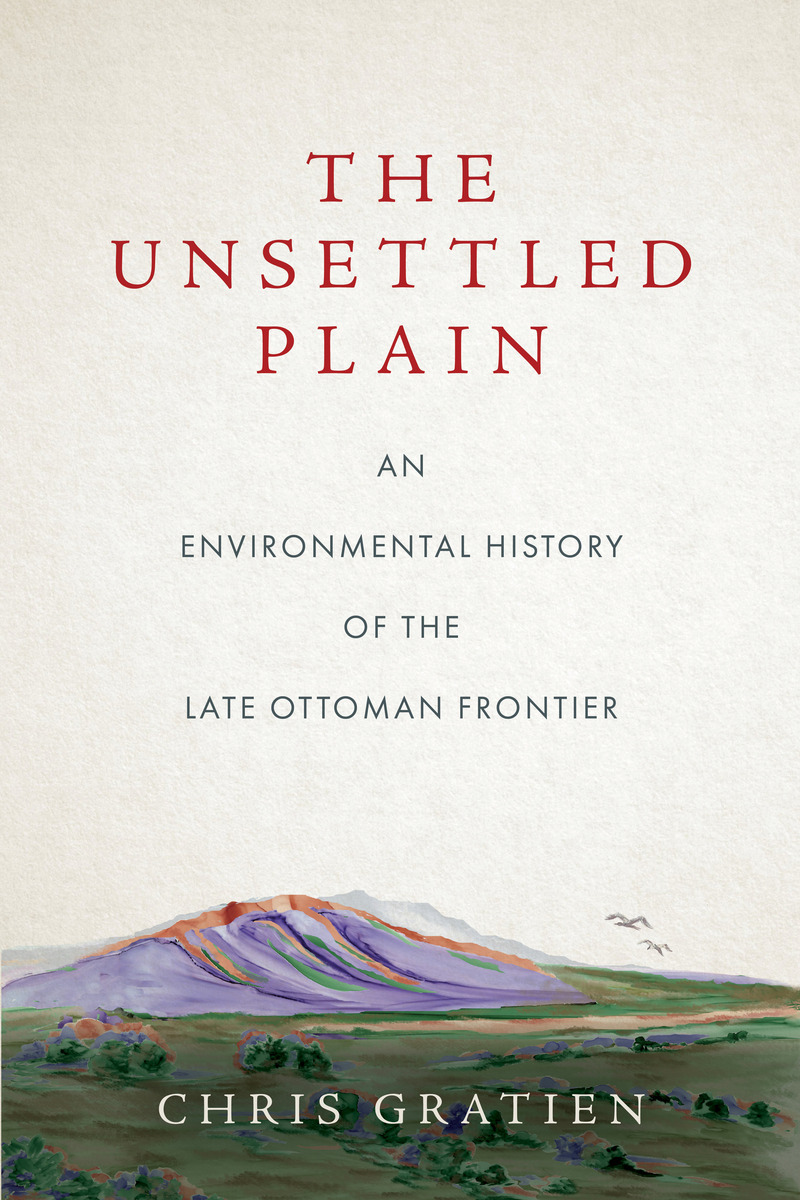Tell us about the Ottoman History Podcast, how it has grown and how your role has evolved over time.
Gratien: At first, we were just eager graduate students who wanted to make something. I can’t say I knew a lot about podcasts and history-writing. My contribution was basic technical skills and enthusiasm. Gradually I learned more about every facet of “internet radio” as I was also training as a historian. We brought in more contributors who obtained skills and operated semi-independently. Other colleagues took leadership roles. We played more with the medium and ended up featuring hundreds of voices along the way, each time trying to do a little better. Today, I still record episodes, but my bigger role is supporting behind the scenes, helping with sound and web production and training new contributors. I still maintain some involvement in every episode that posts.
How a Podcast Grew into an Exploration of Migration and a Surprising Teaching Tool
How a Podcast Grew into an Exploration of Migration and a Surprising Teaching Tool

VA History Professor Chris Gratien speaks about his not-so side gig as part of the recording team for the Ottoman History Podcast, an alternative avenue for scholarly conversation on the Ottoman Empire and the modern Middle East, since its inception in 2011 and how it has enriched his own research and teaching in surprising ways.
Who listens to the podcast? Do you often hear back from the audience? Has it sparked conversations or collaborations?
Gratien: All sorts of people stumble on the podcast because of the diversity of topics. Each episode logs more than 10,000 plays/downloads. I am always pleasantly surprised by the variety of people who reach out. We realized that the larger public audience, even for English-language content, is in Turkey, so we began producing episodes in Turkish, which get more traffic. Engagement with listeners shaped the topics we sought and gave me a better sense of the audiences for Ottoman history. Podcasting also taught me early that the established scholars we often hope to impress as aspiring students are not always the people who are avidly and generously listening and engaging, and it really helped me appreciate more those who do so.
How did you become interested in Ottoman history?
Gratien: The US invaded Iraq during my first year of college. Like a lot of people who were drawn to Middle East studies at that time, I saw scholarship and teaching as interventions in public discourse that was lacking context and very dehumanizing in general. The idea of creating a public humanities project came from the realization that in an era of new media and growing interest in the Middle East, there was a wealth of scholarship that had never reached its full potential audience.

What has been one of your favorite podcast conversations?
Gratien: I stumbled upon cases of Ottoman-born migrants deported from the US during the Great Depression and set out to make an investigative series about them. One episode featured a Sephardi man who escaped deportation only to be murdered in a fundamentally random yet highly politicized incident. The episode touched on a lot, but the basic narrative was about the contradiction that Jewish and Ottoman migrants (he was both) faced race-based discrimination during the depression, yet when killed by a Black shooter decades later, the same man was held up as a white victim of urban violence in the press. I managed to locate his son, Sam Negri, a retired journalist, and recorded with him and his brother. Sam was one of my most thoughtful and well-spoken guests. His voice made it a truly complex and powerful episode, adding layers to the history that I never considered. Sam Negri and I ended up writing something together as well as holding a student-facing event sponsored by the Stroum Center for Jewish Studies at the University of Washington. I had never expected to make a meaningful contribution to Sephardic studies, and this collaboration effected a sort of ethnographic turn in my approach to scholarship. I became more self-reflective — so much so that I paused that series as I sought out scholars who were thinking critically about the stakes and ethics of migration history. This in turn led to more amazing collaborations that not only changed my scholarship and approach to narrative but also who I am as a person. I feel like that was what I was seeking when I naively declared a history major two decades ago, and it can be hard to connect with that feeling once history becomes a job. That is the role my favorite episodes have played in my scholarly development.
Does your work with the podcast impact your teaching? How so?
Gratien: I thought students would be thrilled to listen to podcasts instead of reading scholarly work, but I’ve discovered that some podcasts hit the mark and some prove just as excruciating as an academic journal article. Once I started thinking of undergraduate students as an audience, I think my podcasts got a lot better. During the pandemic, I also realized I had cultivated valuable production skills, as I made asynchronous podcasts and videos for my students. That really helped at a time when students deserved better than what most us were equipped to give them. I even released a collaborative ten-part series called “The Making of the Islamic World” as part of a class I taught in Fall 2020. It was so much better than what I could have provided on my own, and the episodes are still being used as material for classes at many universities. The colleagues who stepped up to work with me on that did a huge service to countless people and took me out of my own isolation. It was a silver lining on a tough semester that kept me feeling excited about teaching and scholarship.



